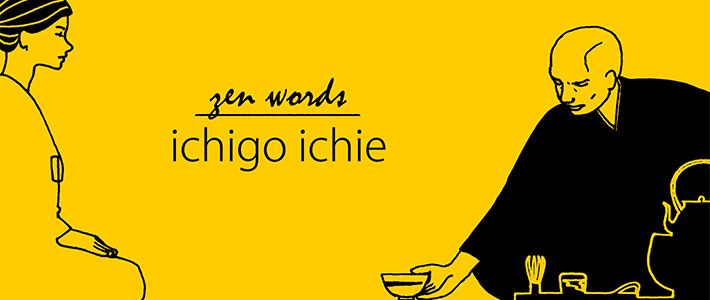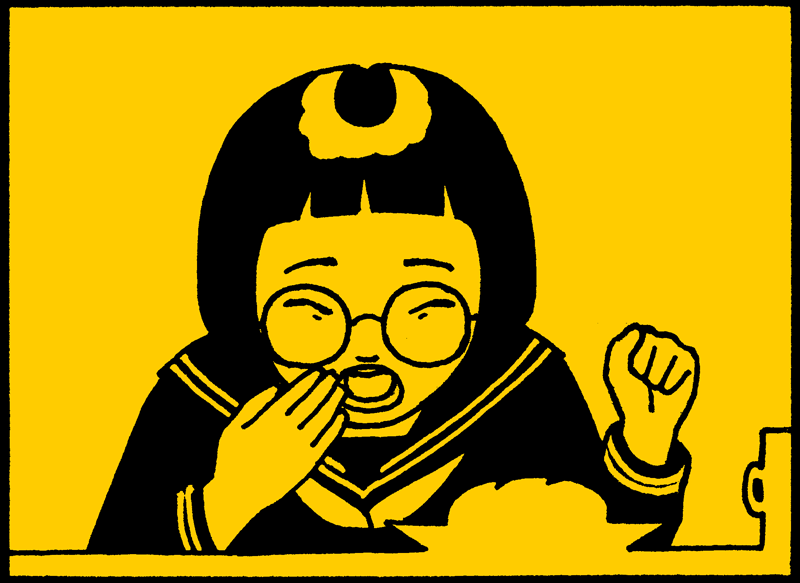
Zen Comics: Wisdom Through Manga
The Language of Zen: Words for a World of Change
Culture- English
- 日本語
- 简体字
- 繁體字
- Français
- Español
- العربية
- Русский
Ichigo Ichie: Newness in Every Encounter
The phrase 一期一会 (ichigo ichie) means a single meeting (一会; ichie) in the course of a lifetime (一期; ichigo), or a “once-in-a-lifetime encounter.” It derives from the tea ceremony.
A tea ceremony may take place many times in the same room, perhaps even involving the same host and guests. Yet participants should infuse themselves, body and soul, with the thought that the day’s particular event will only occur once. When we meet people in other situations, considering each time as unique makes these opportunities precious.
Even with people we see regularly—like parents, brothers and sisters, or friends and colleagues—we will treat them with more care if we think of each meeting as only happening once. And going beyond people to dogs, cats, and other animals, or to trees and other plants, we can view all encounters as never to be repeated. This will surely foster a new sense of connection with the world.
Cast of Characters
Noriko, a selfish junior high school student
Her father, a baker
A young baking apprentice
 “Yaaaaawn!” Noriko was ready for breakfast.
“Yaaaaawn!” Noriko was ready for breakfast.
 “Not this boring old bread again.”
“Not this boring old bread again.”
 “A girl gets tired of the same breakfast every day.”
“A girl gets tired of the same breakfast every day.”
 “Listen, Dad!” Noriko took the bread from the dining room to the bakery where her father worked.
“Listen, Dad!” Noriko took the bread from the dining room to the bakery where her father worked.
 “Is he in there?” she wondered, peeking through the entrance curtain. Her father was teaching the baking apprentice.
“Is he in there?” she wondered, peeking through the entrance curtain. Her father was teaching the baking apprentice.
 “I want you to remember this. The bread may look the same, but how you cook it is different each day.”
“I want you to remember this. The bread may look the same, but how you cook it is different each day.”
 “Huh?” This was news to Noriko.
“Huh?” This was news to Noriko.
 Her father went on. “You have to adjust the recipe based on the day’s temperature. So the bread’s always different. OK?”
Her father went on. “You have to adjust the recipe based on the day’s temperature. So the bread’s always different. OK?”
 “Every day the bread’s different, and people too. You know, millions of blood cells die and are replaced inside us each minute.”
“Every day the bread’s different, and people too. You know, millions of blood cells die and are replaced inside us each minute.”
 “There are customers who come back every day, but we have to treat them well because the bread’s new—and they are, too.”
“There are customers who come back every day, but we have to treat them well because the bread’s new—and they are, too.”
The End
(Originally published in Japanese on March 22, 2017. Manga by Mokutan Angelo.)


